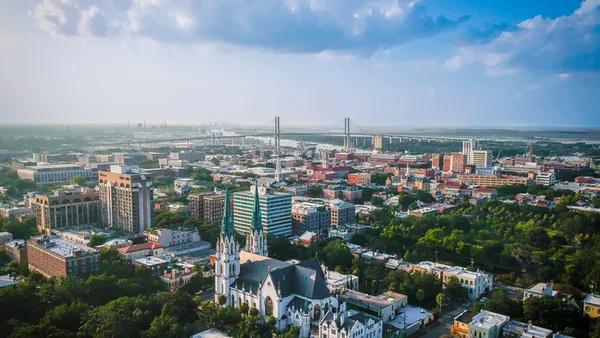Dive Brief:
- STR and Tourism Economics lowered their occupancy projections for 2023, 0.2% to 63.5%, according to an updated forecast released last week.
- The research companies also shifted their 2023 projections for average daily rate and RevPAR, increasing them from a previous forecast by 1.5% and 1.3%, respectively.
- In line with the performance boost, STR and TE predict business travel and groups will lead industry demand growth this year. But the companies also warn uncertain macroeconomic factors could have a negative impact on hotels.
Dive Insight:
TE anticipates returning group and business activity, international travel and consumers’ desire for travel will sustain modest growth in room nights sold for the remainder of this year.
This prediction is backed by a strong start to the year for upper-upscale and upscale chains, two segments most associated with business travel and groups, STR President Amanda Hite said.
“Through the first four months of the year, hotel demand improved 4.3% with most of the gain concentrated in the upper upscale and upscale chains,” Hite said in a statement. “These two chains [...] are expected to lead industry demand growth for the remainder of 2023. With everything considered, the industry has plenty of reasons to remain optimistic about top-line performance.”
Business travel was up to start the year, with a large percentage of workers returning to in-person conferences and trade shows. And despite an uncertain economic climate, consumers have continued to prioritize leisure travel this year, and in some cases have even shown willingness to pay more for it.
However, that may not last for long, as PwC predicts inflation will cause domestic leisure demand to soften in the remainder of the year. PwC also forecasted that individual and group business travel demand will hold strong in 2023 and likely offset decreased leisure demand.
Despite his positive outlook on business travel demand, Aran Ryan, TE’s director of industry studies, said, “Recent stress in the banking system and tighter lending standards will add to inflation pressures and produce a relatively mild recession in the second half of 2023.”
“A halting economy will limit gains in lodging demand,” he added.










